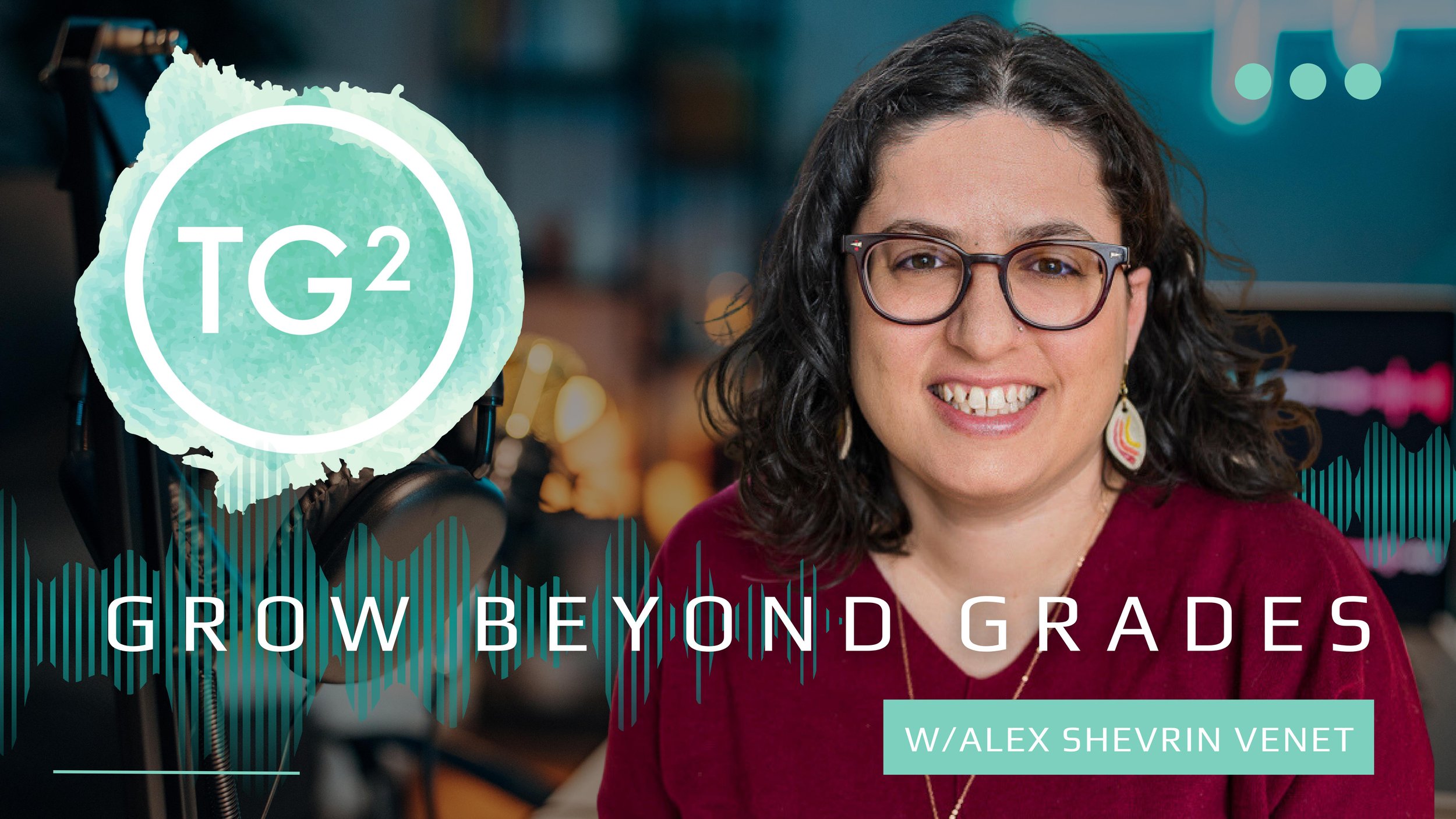Multimodal Composition w/Angela Stockman
Angela Stockman equips educators with practical strategies and tools to design equitable, student-centered classrooms where all learners thrive. Her work focuses on empowering diverse voices through multimodal composition and assessment, fostering confidence and creativity in every student.
Centering Student Strengths w/Dr. Kelsie Reed
Dr. Reed provides practical tools and resources to cultivate positive, strength-focused environments for all students. Her work centers on dismantling deficit-based narratives, particularly for students from historically marginalized communities.
Does Testing Miss the Mark? w/Akil Bello
Our guest on the Grow Beyond Grades podcast is Akil Bello, an expert in educational access with over 30 years of experience. Akil began his career as a test proctor in 1990 and has since held roles from CEO to consultant, working to improve outcomes for underserved students.
MT4S and the Power of Strengths-based Design
Dr. David E. Kirkland discusses the Multi-Tier System of Sustaining Strengths and Support (MT4S) model, which underscores a critical shift from remediation to celebration, from merely navigating learning barriers to paving pathways for success. This is how equity and justice in education really looks.
There is No Other Pill to Take
Learning is not a competition, and ranking and sorting have no place in the process. Differentiation and individualized learning are keys to achieving this vision. While there are challenges to attaining this ideal, it is not the impossible task that some would believe. As David explains, the benefits from this shift have far outweighed any challenges.
Universal Design for Assessment
Having choices in how students show their learning is critically important to access, equity, and even engagement. In addition to these compelling reasons, having choices for demonstrating understanding is a necessary condition of assessment validity. Lee Ann Jung shows how by removing the barriers to assessment, every student has the chance to shine.
Ungrading = Inclusive Assessment?
Grades do harm, and marginalized students are often harmed the most by grades. Yet, as Juuso Nieminen points out, it is dangerous to portray ungrading as a ‘panacea’ or even as a ‘solution’ to the matters of inclusion. Instead, I see ungrading as a deeply contextual, relational practice that can promote inclusion. The critical questions are: why, for whom, and under what circumstances?
Danger: Curve Ahead
Grades serve as mirrors for the structural inequities that are woven into the fabric of our educational systems. Often used for the twin purposes of comparison and competition, grades are drivers of injustice. Josh Eyler shares an excerpt from his forthcoming book dealing with one of the biggest perpetrators of inequity in our schools today: grading curves.
Assessing Holistically w/Dr. Carissa McCray
Michelle Cottrell-Williams interviews Dr. Carissa McCray on how teachers can better create equitable, inclusive learning environment that assess learners holistically. Dr. McCray explains why a culturally competent education is important for everyone in our globalized world, and the all-important role assessment plays in reaching all students.
Everything is Assessment
Assessments are a critical component of education, providing educators with important insights into student learning, and supporting the design of individualized instruction and support. And everything is an assessment. Carissa McCray shows how formative assessments can be embedded throughout our lessons to help both the teacher and student track progress towards learning goals.
Leveling up w/Fabiola Torres
Arthur Chiaravalli interviews Fabiola Torres, an online Ethnic Studies professor and Certified Faculty Developer at Glendale Community College. During the pandemic, she's led nationwide workshops and courses on applying equity-minded methods such as culturally responsive teaching in the online environment, humanizing online teaching and learning and ungrading practices.
Equity-Centered Trauma-Informed Education w/Alex Shevrin Venet
Lisa Wennerth interviews Alex Shevrin Venet, author Equity-Centered Trauma-Informed Education. Venet explains how schools can become more truly trauma-informed when they center equity and employ “proactive priorities” in planning and decision making. A long time ungrader, Alex examines how the same principles can be used to make ungrading more inclusive and equitable.












